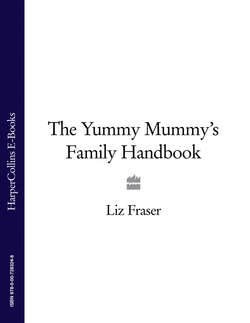Читать книгу The Yummy Mummy’s Family Handbook - Liz Fraser - Страница 17
You’ve Got Mail: Dealing with the family admin
ОглавлениеWhat is it about being a small group of people who live quite peacefully and law-abidingly together that makes so many organisations, institutions and double-glazing companies send you so much mail? Every week the contents of our paper recycling box represent the wood from a small sapling at the very least, and possibly even that of a small tree, and half of it is unopened.
Bank statements, bills, reminders (for me, usually), credit-card offers, child-benefit forms, inland-revenue notices, school letters, magazine subscriptions (oops, me again), party invitations…the list of things to deal with can become overwhelming, even for the most efficient paper-pushers in a household. And that’s to say nothing of the mess all of this paper creates.
There are only two outcomes of being flung into a sea of paperwork: you sink, or you float. Assuming that floating is the preferred option, avoiding as it does any tut-tutting from your in-laws and a visit from the bailiffs, then systems need to be put in place to help you swim. These do not involve pushing forms under the carpet, moving unopened envelopes from one table to another, or assuming the other person will deal with it. Instead, you need a family in-tray and a clear idea of who deals with what.
Deal with as much mail as you can the moment you get to it. At least half of it will go immediately into the recycling box, and this will make the job look less daunting.
Sort the rest into urgent and non-urgent. Leave all urgent things in the middle of your work space in the kitchen so you can’t do anything until you’ve paid that bill or RSVPed that invitation.
Get a nice container for all non-urgent incoming mail. Ours is a pretty, metal hanging basket, and it’s very narrow so it fills up quickly. As soon as it looks even full-ish we know it’s time to go through it. This means nothing is ever more than a week old when we come to deal with it, which is usually fine—it’s non-urgent, see?
Know who pays which bills. In impressively forward-thinking fashion, my husband pays all the household bills and credit cards. Actually, we only have one credit card, but he still checks the bill and pays it every month. This is so embarrassingly old-fashioned that I cringe as I think of it, but it saves me so much hassle that I am prepared to live with the scolding from ghosts of feminists past. Anyway, I deal with everything else, like baby-sitters, all school correspondence, sorting out school holidays and half-terms, making sure my children get to see a dentist more than twice before they are teenagers, and tons more. This set-up works for us, and it means we avoid most ‘What do you mean, “Have I cancelled the direct debit for the gas”? I didn’t even know we had one’ arguments. Sometimes old-fashioned rocks.
Destroy the evidence. Never throw away any documents that have your bank details or address clearly visible on them. This goes for recycling too. Either get a small shredder for such material or make sure you rip it up into teeny-weeny pieces before throwing it away. Those identity fraudsters are not ashamed to go through your bin.
Be honest. This applies to every chapter of this book, of course: honesty is the bedrock of all relationships, along with firm abs and a man who knows his wife is always right (it’s best you know right from the start that I’m joking when I say things like this, otherwise the next 400 pages won’t go down well at all). Not owning up to the girly lunch and spending spree you enjoyed last month will not only cause trouble when it crops up on the statement, but it will also result in understandably wavering trust on his part. If you love each other there’s nothing you need to hide, or feel so bad about that he won’t forgive you. Honesty, trust and forgiveness—it’s quite simple, and it works.
